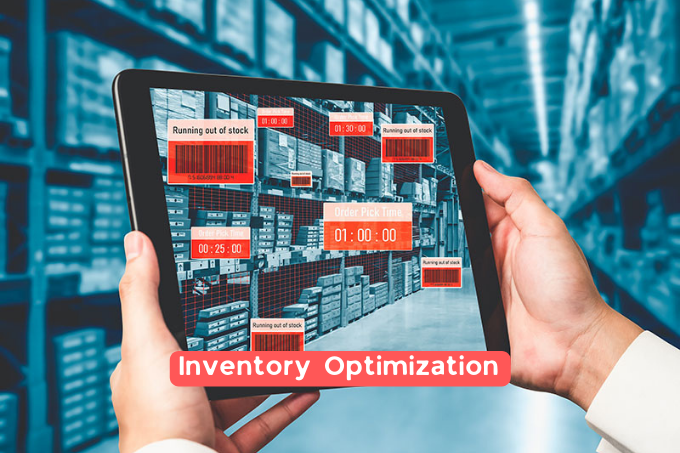In today’s fast-paced corporate environment, supply chain management has become more complex than ever. With global markets, advanced technologies, and changing customer demands, managing the supply chain has become daunting for businesses. However, the supply chain is being revolutionized with the advent of artificial intelligence (AI). AI enables businesses to manage their supply chains more efficiently, predict customer demand, and optimize operations. This report will explore how AI revolutionizes supply chain management and its impact on businesses.
What is Supply Chain Management?
Before diving into AI’s role in supply chain management, let’s first understand what supply chain management is. Supply chain management refers to handling the flow of goods and benefits from the point of origin to the point of consumption. It involves planning, sourcing, manufacturing, and delivering products to customers. Supply chain management also includes inventory management, transportation, and logistics.
The Role of AI in Supply Chain Management
AI is playing a critical role in transforming supply chain management. It enables businesses to explore vast amounts of data, predict customer demand, optimize operations, and improve efficiency. Here are some ways AI is revolutionizing supply chain management:
1. Demand Forecasting
AI algorithms can analyze historical sales data and customer behavior to predict future demand accurately. This helps businesses to plan their inventory levels, production schedules, and logistics operations more effectively. Accurate demand forecasting also helps businesses to avoid stockouts and reduce inventory holding costs.
2. Inventory Optimization

AI algorithms can optimize inventory levels by analyzing sales trends, lead times, and supplier performance data. This helps businesses to maintain optimal inventory levels, reduce stockouts, and improve cash flow.
3. Predictive Maintenance
AI methods can analyze data from sensors and other sources to indicate equipment failures and maintenance requirements. This helps businesses to avoid unplanned downtime, reduce maintenance costs, and improve equipment efficiency.
4. Logistics Optimization
AI algorithms can optimize logistics operations by analyzing data on transportation routes, delivery times, and transportation modes. This helps businesses to reduce transportation costs, improve delivery times, and enhance customer satisfaction.
5. Supply Chain Visibility
AI can provide real-time visibility into the supply chain by analyzing data from various sources such as sensors, GPS, and RFID. This helps businesses to track inventory levels, monitor shipments, and identify possible bottlenecks in the supply chain.
The Benefits of AI in Supply Chain Management
Adopting AI in supply chain management can provide several benefits to businesses. Here are some of the benefits:
1. Improved Efficiency
AI can help businesses to optimize their supply chain operations, reduce costs, and improve efficiency. This can lead to faster delivery times, better customer service, and increased profitability.
2. Better Decision-Making
AI can provide businesses with real-time insights into their supply chain operations. This helps businesses to make better decisions regarding inventory levels, production schedules, and logistics operations.
3. Enhanced Customer Satisfaction

AI can help businesses to improve their customer service by providing accurate demand forecasting, faster delivery times, and better product quality.
4. Increased Agility
AI can help businesses to respond quickly to changing market conditions, customer demands, and supply chain disruptions. This can help businesses to stay competitive in a rapidly changing business environment.
Challenges of Implementing AI in Supply Chain Management
While AI has the potential to revolutionize supply chain management, there are several challenges that businesses may face when implementing AI. Here are some of the challenges:
1. Data Quality
AI algorithms require high-quality data to provide accurate insights. Businesses may face challenges in collecting and managing data from various sources.
2. Integration with Existing Systems
Integrating AI with existing systems can be a challenge for businesses. It may require significant investments in IT infrastructure and training.
3. Security and Privacy
AI algorithms may analyze sensitive data such as customer information, supplier data, and financial records. Businesses must ensure the security and privacy of this data.
4. Ethical Considerations
Using AI in supply chain management raises ethical concerns such as job displacement, bias, and transparency. Businesses need to consider these ethical implications when implementing AI.
Conclusion
AI transforms supply chain management by providing businesses with real-time insights, improving efficiency, and enhancing customer satisfaction. While there are challenges to implementing AI in supply chain management, the benefits outweigh the challenges. Businesses that embrace AI in their supply chain management processes will be better equipped to compete in a rapidly changing business environment.
FAQs
1. What is supply chain management?
Supply chain management refers to handling the flow of goods and benefits from the point of origin to the point of consumption.
2. What are the benefits of AI in supply chain management?
The benefits of AI in supply chain management include improved efficiency, better decision-making, enhanced customer satisfaction, and increased agility.
3. What are the objections to implementing AI in supply chain management?
The challenges of implementing AI in supply chain management include data quality, integration with existing systems, security and privacy, and ethical considerations.
4. How can AI help with logistics optimization?
AI can optimize logistics operations by analyzing data on transportation routes, delivery times, and transportation modes. This helps businesses to reduce transportation costs, improve delivery times, and enhance customer satisfaction.
5. What are the ethical considerations for using AI in supply chain management?
Using AI in supply chain management raises ethical concerns such as job displacement, bias, and transparency. Businesses need to consider these ethical implications when implementing AI.









